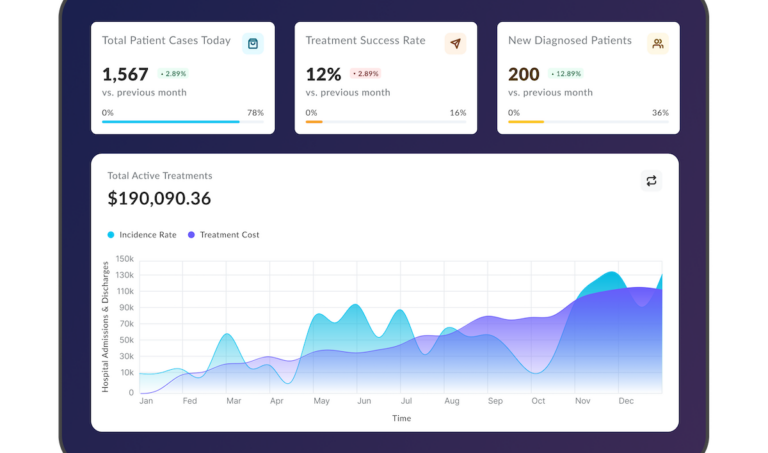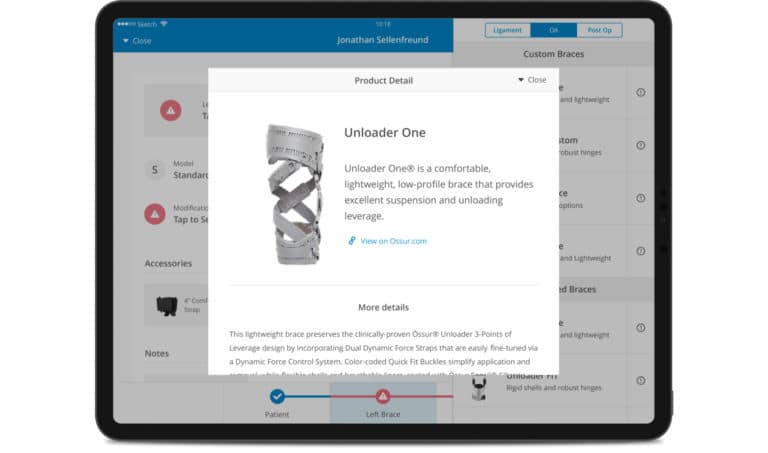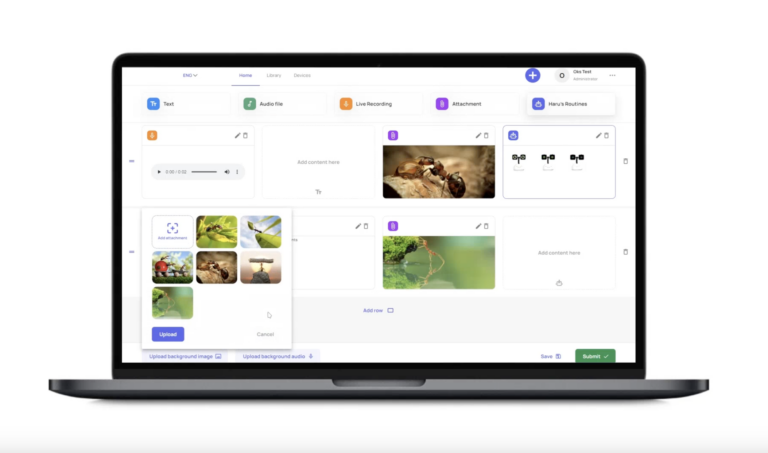Custom Loyalty App Development: How to Do It Right
Updated: August 20, 2024
It’s astonishing but true that before choosing a retailer, 69% of consumers consider the availability and benefits of loyalty points or reward programs.
All businesses strive to form strong connections with their target customers, and a loyalty app can help do that. But how do you make and implement a custom loyalty app? Let’s find out. After reading this blog, you will have a clear understanding of how to set up the right loyalty app development process and how it will help you win your customers’ appreciation.

We provide companies with senior tech talent and product development expertise to build world-class software. Let's talk about how we can help you.
Contact usTable of Contents
Loyalty app design: What’s in it for you?
Loyalty programs are an example of gamification – customers collect points and use them for perks or free treats. But there’s more to loyalty apps than simplifying or automating a loyalty program.
Three benefits of having a loyalty app for your business
Here’s what you get when designing your loyalty application:
- Data for your business. A customized customer loyalty program app can gather precious business insights related to customers’ behavior and purchasing habits.
- Connection at the right time. A business can initiate highly personalized communication with its customers through a loyalty app and strengthen engagement.
- Convenience. Phones are our full-time companion – make the most of it. Pew Research Center has found that one-fourth of American millennials use their phones for more than five hours every day. So, having a mobile app loyalty program makes it more convenient to reach customers at any time.
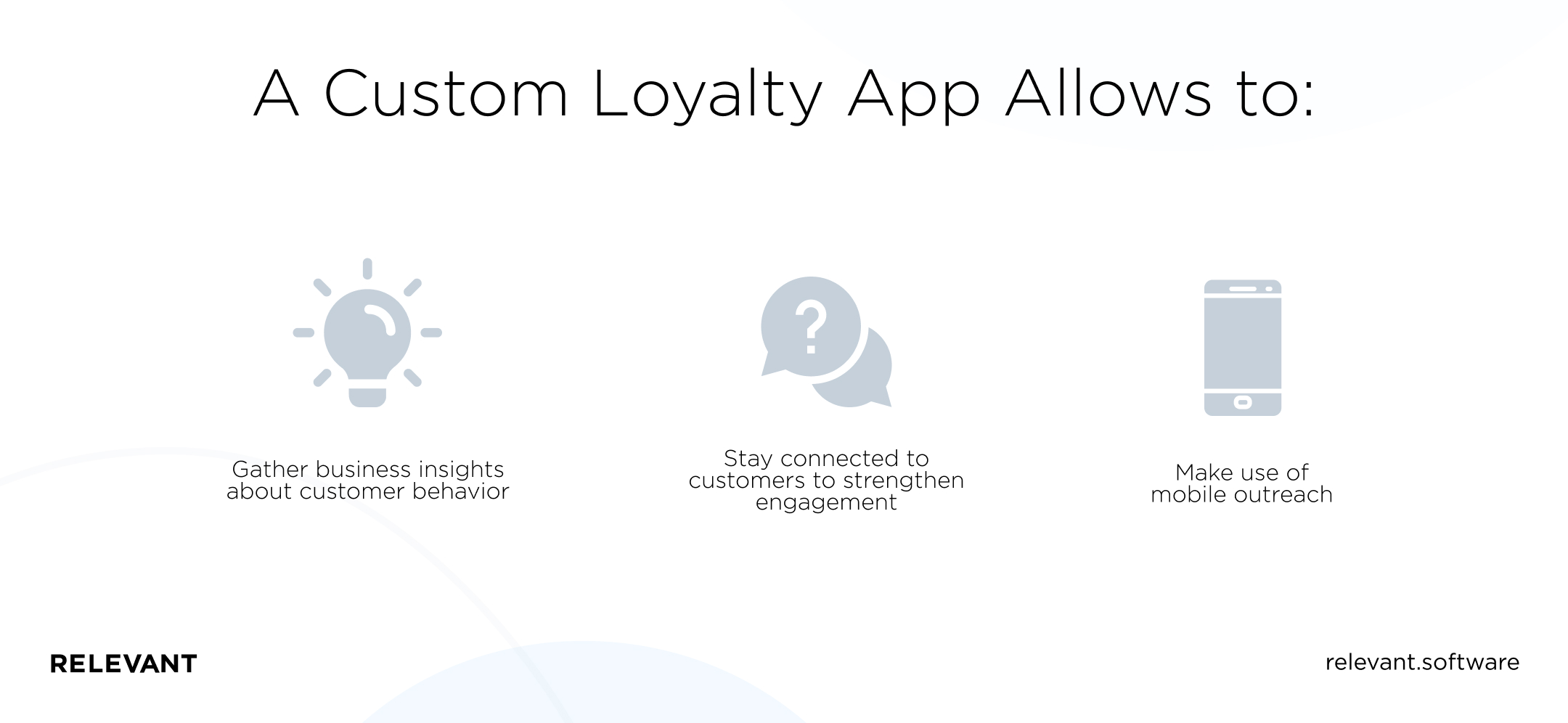
Which industries use loyalty apps?
Many industries use app-based customer loyalty programs, such as:
- Travel & Tourism: Airline miles or hotel benefits are examples of loyalty programs in this sector.
- Food & Beverage: Many restaurants and food chains use this model to reward customers with, for example, the 7th burger or 6th coffee free, with loyalty points.
- Retail: Digital POS-based loyalty programs are very common in retail.
- Beauty: Customers can enjoy exclusive benefits when they go for a haircut.
- Pet Supplies & Agri Products: Zoetis, a renowned pet product company, sends push notifications to customers through their app when purchasing a treatment product for their pets.
A loyalty app allows you to engage with your customers and gather data to help improve your products or the user experience. Such applications are helpful in many industries, so they will most likely suit yours as well. Check out some examples below.
Examples of successful loyalty program apps
The list of brands and companies that use loyalty programs with or without software is endless. But who has that kind of time to go through it? So here are a few examples of successful customer loyalty program apps:
- Starbucks Rewards: Launched as an industry pioneer, Starbucks Rewards gathers a wide array of data related to customer behavior.
- Sephora Beauty Insider: More than 25 million loyal customers, who generate 80% of Sephora’s annual revenue, are members, as reported by Forbes.
- Amazon Prime: The famous customer loyalty rewards app by Amazon successfully keeps its members on its websites four times longer than the non-prime users.
- Apple: Unlike any other retailers or business, Apple has turned the brand itself into a loyalty program for its customers without a traditional stand-alone app.
Why does your company need a custom loyalty app?
Just because Starbucks or Amazon use a loyalty app doesn’t mean that every other business should have one, or does it?
Sure, if you’ve just opened your doors, loyalty app development might not be your number one priority. But if your business is steadily growing, you should consider developing such an app. Here’s why:
- Convenience. Shoppers often see it as an inconvenience to carry a plastic card for loyalty rewards, as found in a survey conducted by CodeBroker. So, digitalizing the process through a mobile loyalty app would make it more enjoyable for customers.
- Personalization and Big data. It will allow the company to design unique benefits tailored to users’ preferences.
- Sense of exclusivity. Businesses can also gather personalized data about customers’ behavior and preferences. Customers will eventually form a better bond with the company as the app will create a sense of exclusivity.
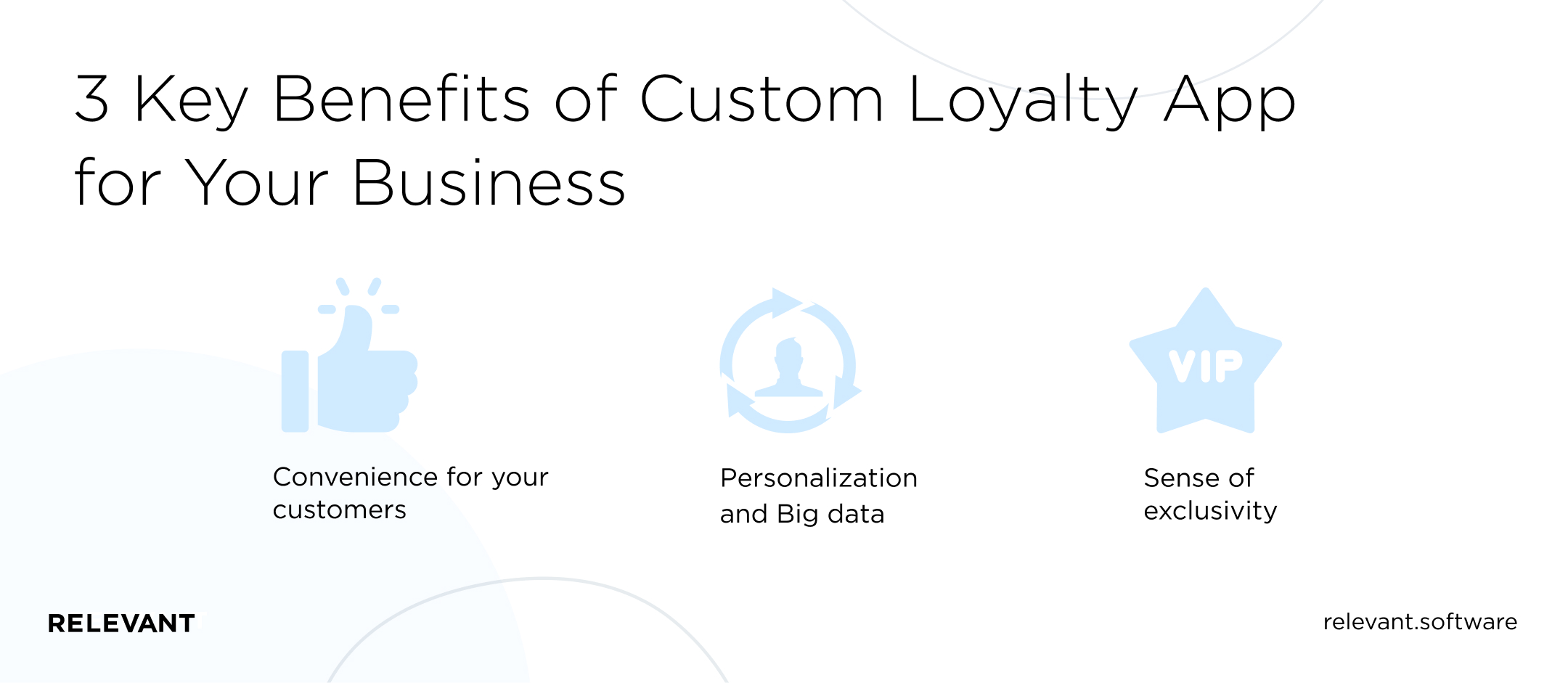
Plus, the cherry on top – personalization for your business. Implementing custom app development allows you to tailor the software according to the needs of your industry and products. You can’t reach the ultimate level of customization with a ready-made product.
Should you outsource your loyalty app development project?
As a business owner, you may be wondering how to build a loyalty app for your products or services? Developing customer loyalty apps for small businesses is not an easy task. Let’s describe the key challenges here:
- Managing funds and ROI: The approximate cost of developing a loyalty app for your business may fall within the range of $3,000 to $150,000, depending on the features. The investment should also generate a good return to make it feasible.
- Development technology: The app can be native, hybrid, or cross-platform in nature. The recommended option is always the more flexible and future-proof one. Some customer research is needed.
- Cross-device compatibility: The app should run smoothly on any screen size or device, just like mobile apps such as Facebook or Instagram.
- Compatibility with different OS’s: The three main OS’s are iOS, Android, and Windows. The loyalty app should be compatible with all of those.
- Security: There can be so many issues related to cybersecurity, such as malware infection or privacy invasion.
Why outsourcing is the answer
While you deal with hundreds of problems with your business, putting your resources into developing an app sounds daunting, right? Therefore, outsourcing could be an optimal solution for you. Here’s why:
- Reduced costs: App developers from countries with a lower cost of living than first-world countries can offer you the same service at a reduced price.
- Time saved: A ready-to-roll development team will be available to you without you having to invest time and resources into the hiring and training process.
- High quality: There are many sources to get genuine reviews about the loyalty app development team you plan to hire. It will give you great peace of mind if you hire a software development team with a proven track record.
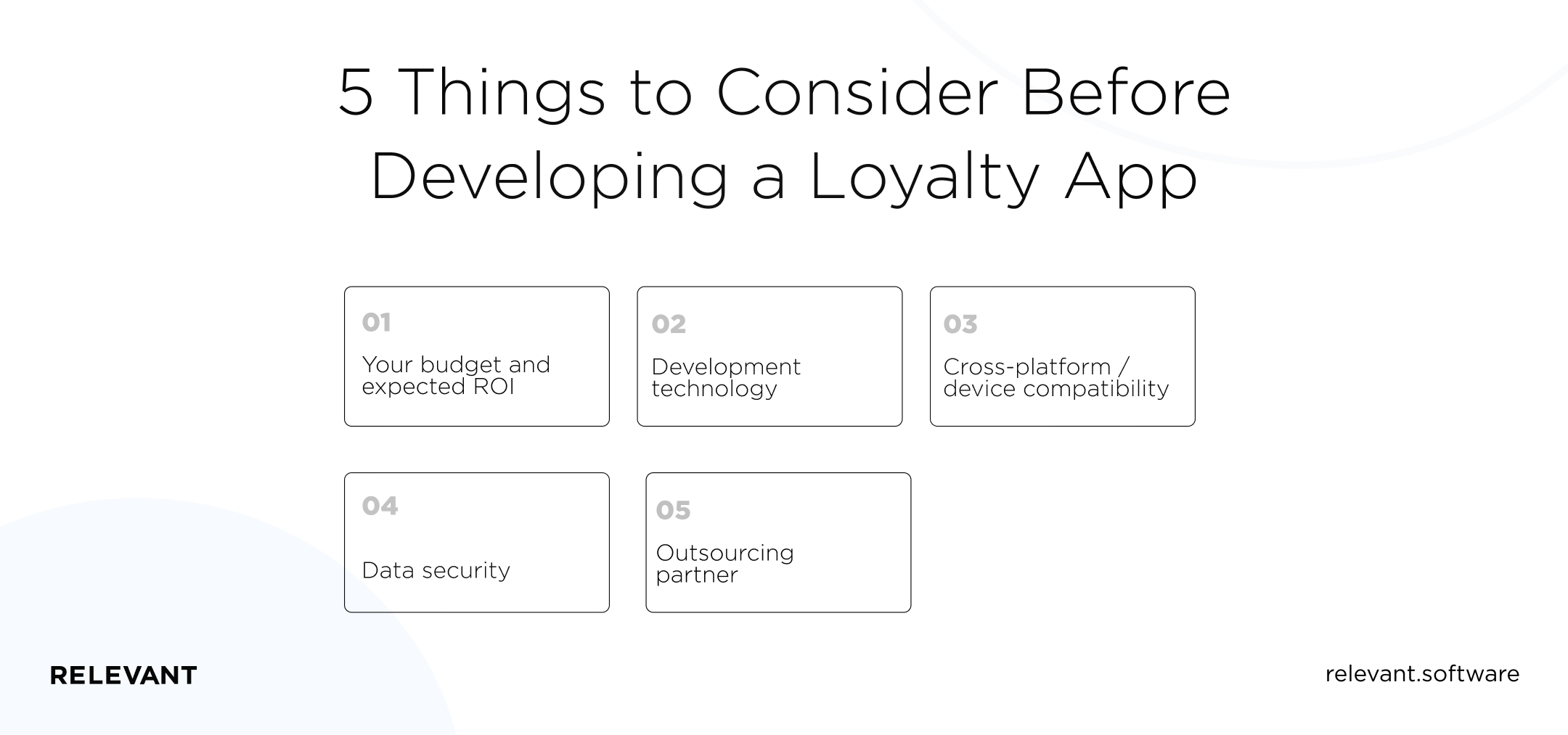
Loyalty app development: What should you know?
Before you start a development project, there are several things you need to consider to create the best customer loyalty app for your business, such as:
- Availability: The adaptation rate is still in the early phase for customers to use a mobile app for loyalty, mainly due to fewer merchants.
- Storage space: An average US consumer has a subscription with 14 loyalty programs. So installing a separate app for each merchant will take considerable space on their device.
- Reliability: There are challenges specific to phones, such as low battery or loss of network.
- Software failure: The remote server can fail due to many reasons creating frustration for customers.

We provide companies with senior tech talent and product development expertise to build world-class software. Let's talk about how we can help you.
Contact usCreating a loyalty program app: Three steps
You can proceed with the app development process in these three essential steps:
- Step 1: Prototype
Creating a loyalty app begins with developing and testing a prototype where all of the user flows are identified. At this point, you’ll need a test group to find the possible flaws and even them out before moving forward with programming the solution. - Step 2: Develop an MVP
A minimal viable product, or MVP, is developed alongside a backend for software engineers and an admin portal for the content managers. At this stage, you will have to hire an app developer. - Step 3: Launch & track
The app has to be deployed through platforms like Google’s Play Store or Apple’s App Store in the final stage of loyalty app design. You will need to keep an eye on the app’s performance.
Key features of a loyalty app
Loyalty app features include but aren’t limited to:
- Onboarding: This should be convenient for users, possibly through email, loyalty numbers, or social media accounts.
- Personal profiles: Helpful in collecting specific consumer data and initiating meaningful communication.
- Reward systems: Examples include discounts, special offers, reward points, and e-wallet points.
- Social media integration: This can lead to a highly engaging user experience.
- Gamification: Integrating creative and easy games ensures that users have a fun experience that encourages them to use your products or services more often.
- Push notifications: Instantly remind users about new offers.
- Maps and geolocation: With permission, customers can receive notifications when a store is nearby.
- Pre-ordering: Customers can enjoy a pre-ordering process because there will be no need to stand in a queue.
- Mobile payments: Integration with the payment gateway, such as PayPal, Apple Pay, and Android Pay, is helpful.
- Analytics: Can generate valuable business insights for strategic decision-making.
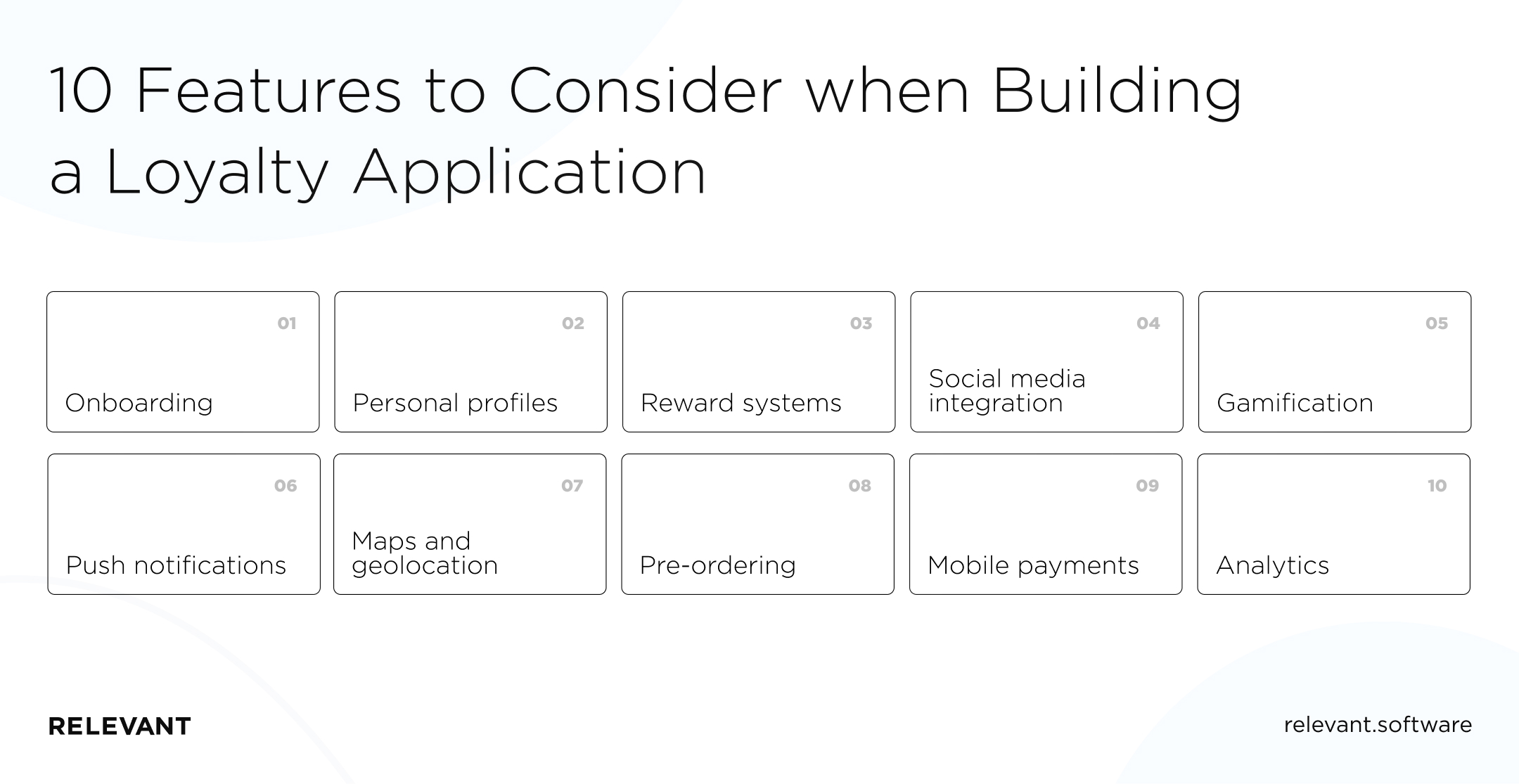
How much does it cost to build a custom loyalty app?
Different factors can influence the development cost, including the following:
- Complexity: Naturally, pricing will be higher for a more complex app with more features.
- Tech stack: There are different technologies available to build an app, each with its own pros and cons.
- Third-party integrations: Often, third parties will charge service fees or commission to integrate with their platforms.
- Development team’s hourly rate: The rate can vary depending on the geolocation of your development team.
Why should you outsource loyalty app development to Ukraine?
Outsourcing development will ensure you get better value for money and more convenience compared to developing in-house. Let’s consider why you should choose Ukraine to outsource your mobile app development.
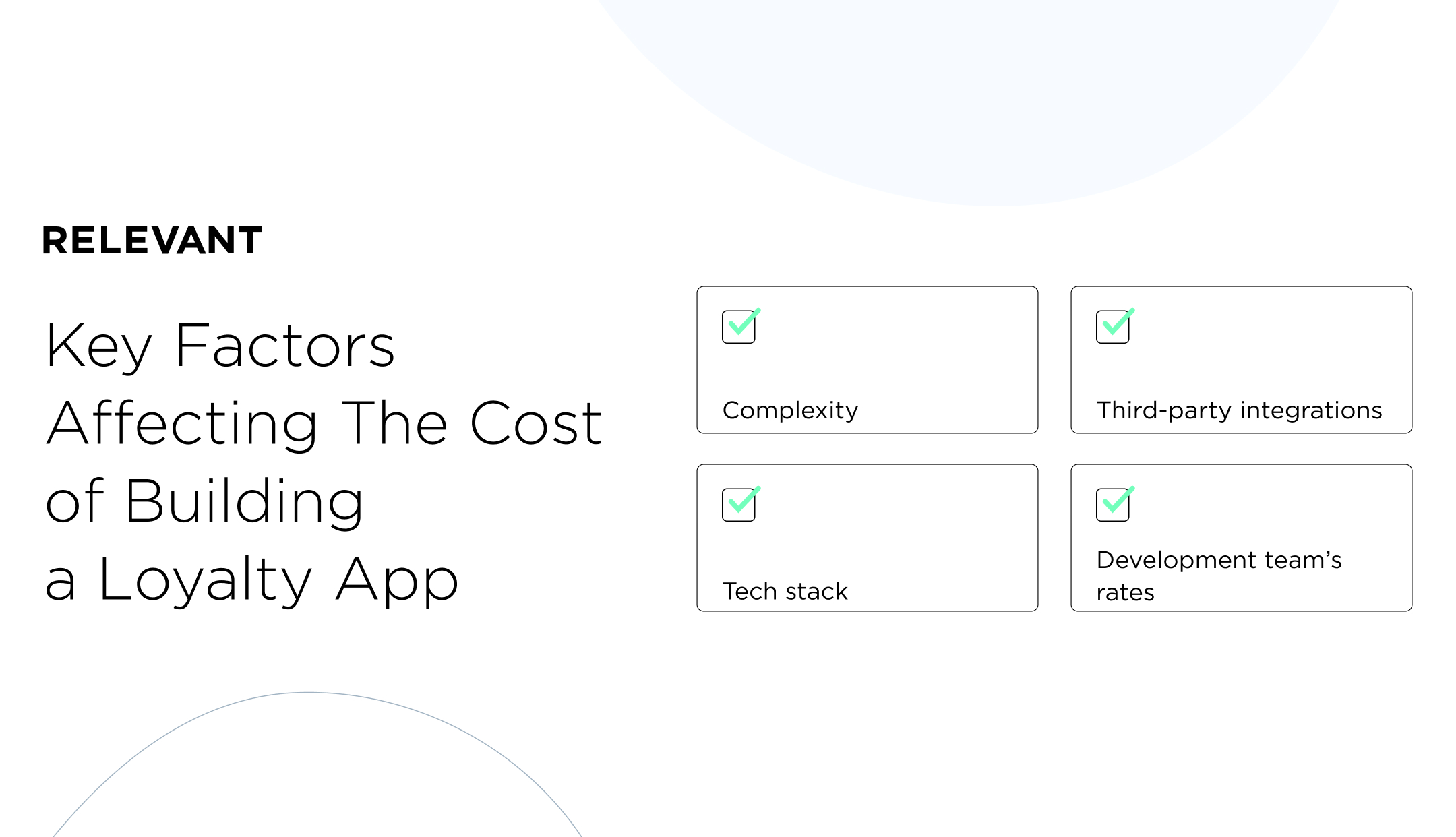
- Advanced IT industry: The IT industry in Ukraine is highly advanced with many Fortune 500 companies outsourcing to Ukraine.
- Great R&D hub: There are over a thousand reputed IT companies. One-fifth of the developers possess more than seven years of industry experience.
- Solid education: Over 30,000 tech graduates enter the industry per annum, on average, specializing in scientific disciplines related to software development.
- Excellent quality-price ratio: You get superb value for money for your investment. The average hourly rate is 60% less compared to the US. Moreover, it is also less if you compare it to Poland, Czech Republic, or other neighboring countries.
Some examples of hourly rates in the Ukrainian market are as follows:
| Type of Employee | Hourly Wage |
| Business Analyst | $40-$63 |
| Architect | $50-$77 |
| Project Manager | $45-$70 |
| Junior Engineer | $25-$42 |
| Junior QA | $25-$42 |
| Ul/UX Designer | $35-$56 |
How can Relevant Software help you?
Relevant Software can develop a loyalty app that will be a great value addition for your business. In addition to that:
- We have ample experience with mobile app development services.
- Our team is experienced in designing and developing software of various complexities and sizes.
- We also have sufficient experience working on projects related to loyalty programs, for example, Spindy.
The Spindy project resulted in an app based on a custom gamification model. It helps local small retail businesses attract customers with cashback rewards. It also offers a higher retention rate thanks to the gamified model and easy integration.
We are ready to start creating a great mobile rewards app for your business. So give it a go, and contact us right away.
FAQ
Our core services:
Do you want a price estimate for your project?
Do you know that we helped 200+ companies build web/mobile apps and scale dev teams?
Let's talk about your engineering needs.
Write to us